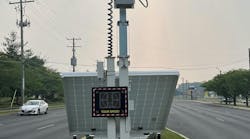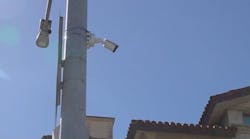If you've gotten a traffic ticket in Austin lately, consider yourself extra unlucky.
The number of traffic tickets issued by Austin police has been plummeting -- from 264,428 in 2009 to 133,852 in the 2012 fiscal year, which ended Sept. 30. That works out to 358 fewer tickets per day -- or 15 per hour.
"That's fine with me," said Jay Epparo, a grocery truck driver from Sulphur Springs who makes deliveries to Austin at least once a week and got his last speeding ticket here three years ago. "If they are writing less (tickets), that means they aren't bothering me as much."
Austin isn't alone: Nine of the state's 10 most populous cities had fewer traffic cases filed in municipal court in 2011 than the previous year, according to statistics from the state Office of Court Administration. (San Antonio was the lone exception, with 16 percent more traffic cases.)
Even Texas Department of Public Safety troopers issued an average of 443 fewer tickets per day in 2011 than they did in 2008 on Texas highways -- a 14 percent drop, although the number remained virtually the same from 2010 to 2011. The slowdown has come as the state's population continues to grow.
But with traffic fatalities soaring in 2012, the falling ticket numbers bother Austin Police Chief Art Acevedo, who says there's a direct link between traffic enforcement and public safety.
"Traffic enforcement is absolutely key to our overall strategy of keeping Austin safe," Acevedo said. "It's about saving lives and reducing the chaos on our highways and our streets."
So why aren't his officers writing more tickets? The chief and the union disagree about some of the reasons.
Acevedo said Austin police are so busy responding to calls for service that they have less down time when they can write traffic tickets. The chief sent an email to the entire department Dec. 6 instructing officers to write more tickets and issue fewer warnings when they stop motorists.
Acevedo said that police have more territory to cover as the city's boundaries expand through annexation and that officers are frequently pulled from patrol duty to help with big special events such as Formula One and the South by Southwest music festival.
Another factor, Acevedo said, is the temporary loss of grant money that pays for traffic enforcement.
In January 2008, the department began receiving about $850,000 in grant money each year from the U.S. Department of Transportation's Federal Motor Carrier Safety Administration to help pay officers' overtime for traffic enforcement -- resulting in about 17,000 tickets per year, police officials said. The department didn't receive the grant in 2010, although it was reinstated in 2011.
Sgt. Wayne Vincent, president of the Austin Police Association, agreed that the department is stretched thin and officers have little to no time between calls to make traffic stops. But Vincent added that some officers might also be reluctant to make traffic stops because they can lead to complaints that may bring unwanted scrutiny from supervisors.
"We've got a punishment mentality down here in which officers will be put through the grinder at the slightest misconduct," Vincent said. "When you have an organization that has no tolerance for mistakes, you create a workforce that is afraid to work."
"It's disappointing to hear Sgt. Vincent describe his membership as not being a working group of police officers," Acevedo said.
Fewer tickets elsewhere
Other states, including Ohio and Florida, have also reported a drop in traffic tickets in recent years. But there's no national repository of traffic ticket data, so it's hard to tell whether it's a national trend, said John Bowman, communications director for the National Motorists Association.
The Office of Court Administration statistics paint a mixed picture of police activity on Central Texas roads:
--In Leander, the number of traffic cases plunged 45 percent between 2009 and 2011, and in Georgetown, the number plummeted about 34 percent over the same period.
--In San Marcos, the number dropped about 23 percent, from 13,091 cases in 2009 to 10,129 in 2011.
--Pflugerville, Kyle and Mustang Ridge had roughly the same number of traffic cases in 2011 as they did in 2009.
--Traffic cases increased 20 percent in Cedar Park and skyrocketed 82 percent in Bee Cave from 2009 to 2011.
Fewer officers making traffic stops is one factor in 2012's spike in traffic fatalities in Austin, Acevedo said. The city had 80 fatal wrecks last year, the most since 1986 (when 81 were reported) and a 48 percent increase from 2011.
"That's a huge deal, because there's a direct correlation between traffic enforcement and bad outcomes," Acevedo said.
If so, it's not a correlation that holds true everywhere. Statewide and nationally, fatality rates -- measured by deaths per million miles driven -- have been falling in recent years, according to the National Highway Traffic Safety Administration.
One effect that's clear is that the drop in citations has cut into the money Austin receives in traffic fines -- from $8.35 million in 2009 to $6.12 million in 2012. Still, the revenue loss doesn't directly affect the Police Department; about 60 percent of the money goes to the city's general fund, and the other 40 percent goes to the state, according to Austin Municipal Court Clerk Rebecca Stark.
Nicholas Stanley, a state employee who commutes from his Northwest Austin home to his office in Central Austin, said he likes the idea of police officers focusing on more serious crimes such as drug dealing and burglaries rather than writing tickets.
"I would rather have law enforcement doing prevention or things like that," said Stanley, who said his last traffic ticket was for an expired inspection sticker several years ago. "I don't want a police officer just pulling me over."
Copyright 2013 - Austin American-Statesman
McClatchy-Tribune News Service


